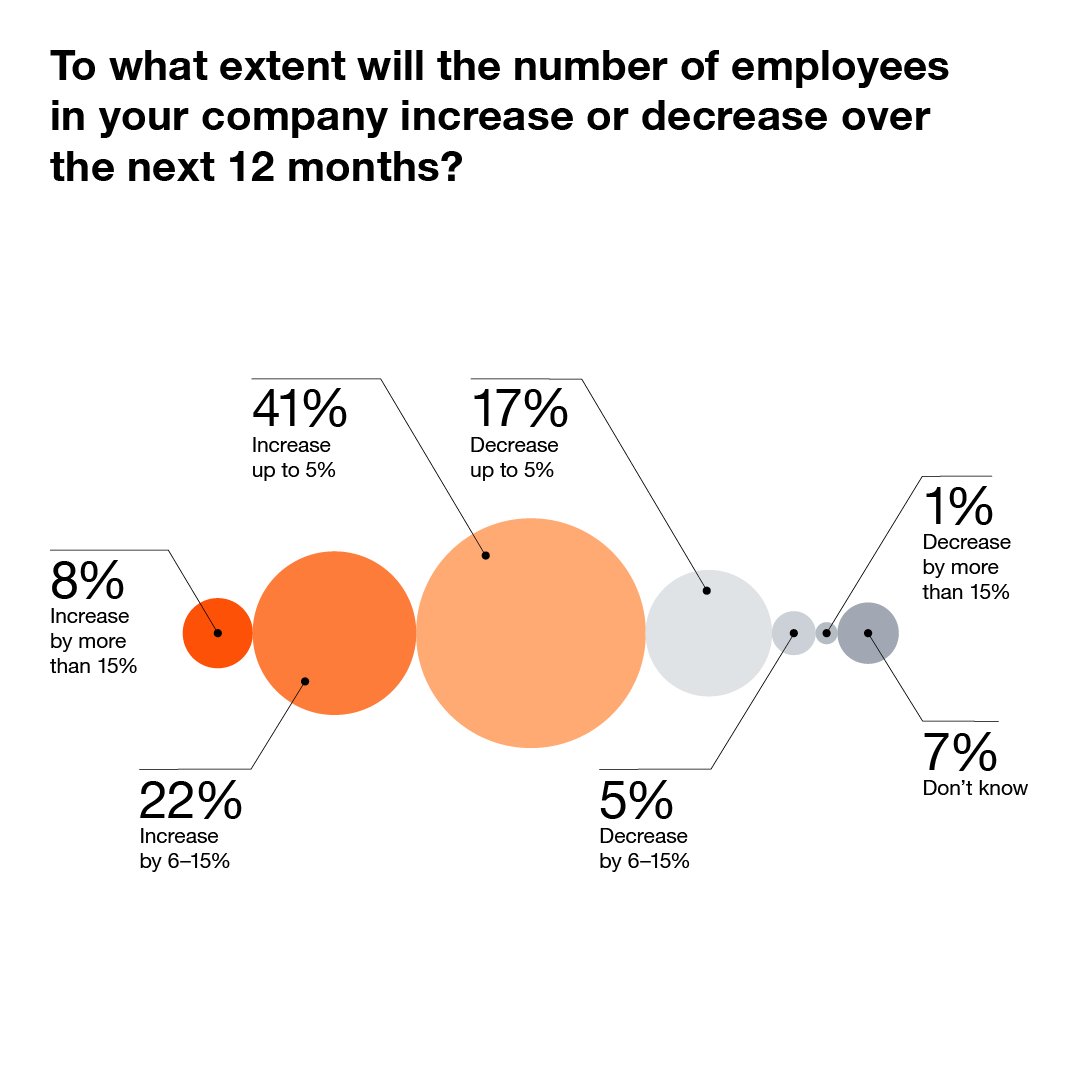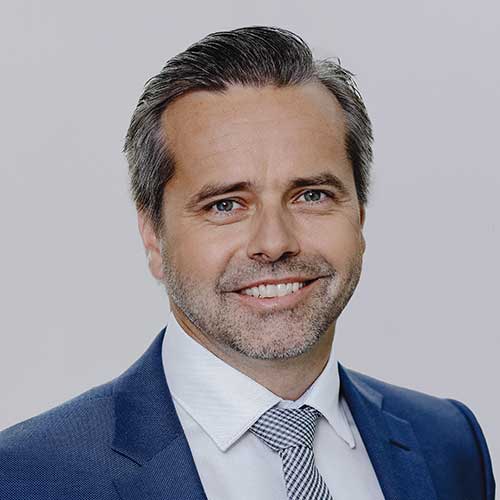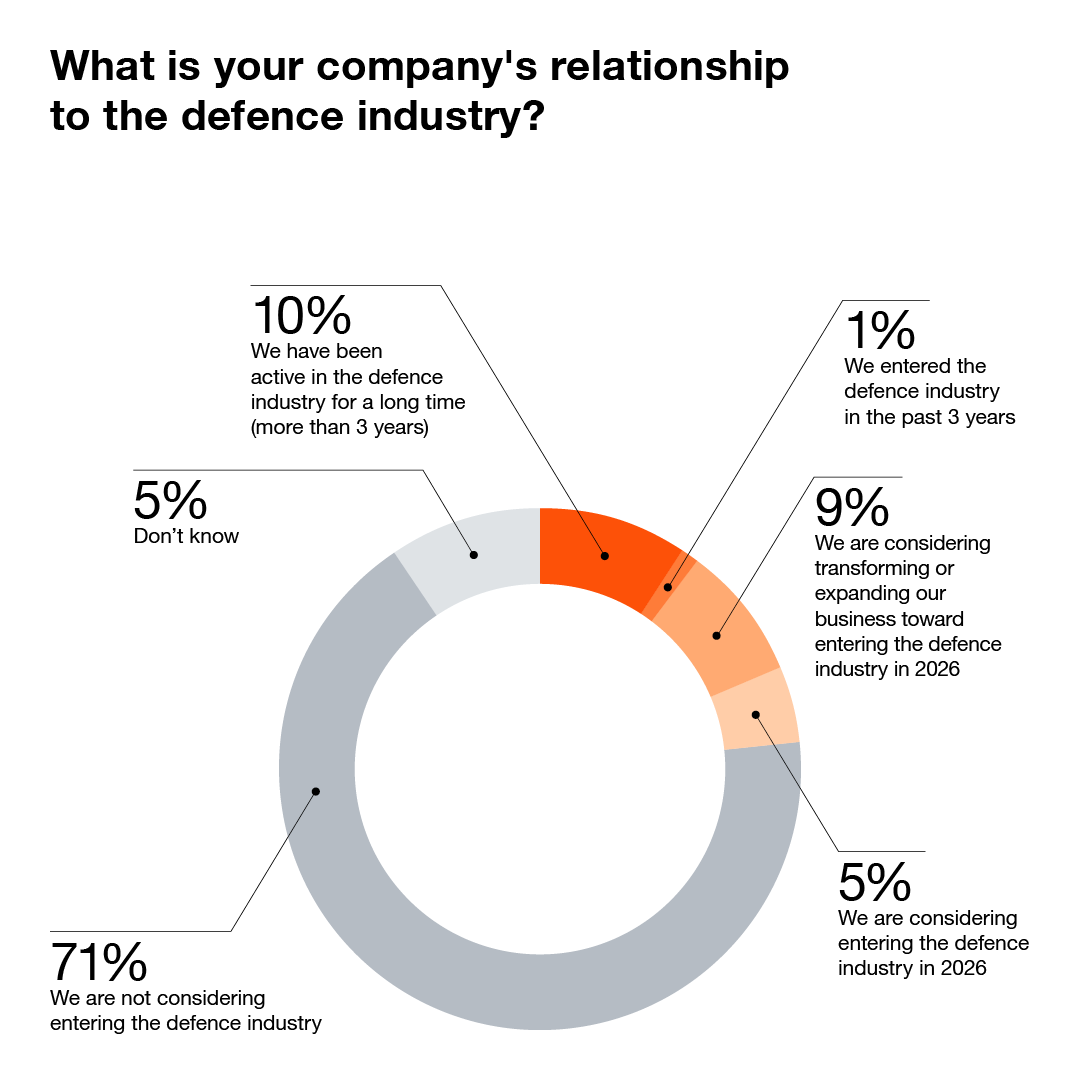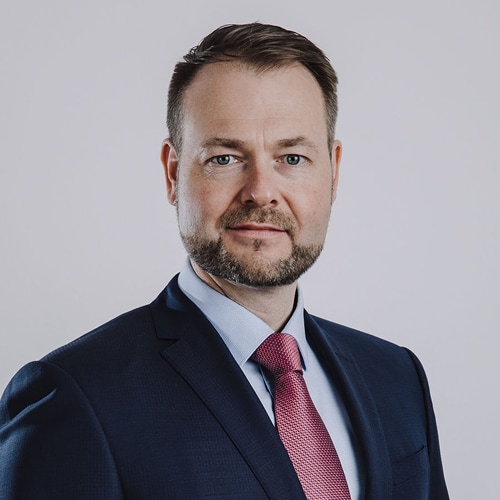A wave of optimism in a sea of uncertainty
PwC CEO Survey 2026
The optimism of Czech CEOs is at its highest level in recent years. They believe in the positive development of their own businesses and the economy as a whole and are anticipating growth. Concerns from recent years have eased considerably, according to this year’s 17th annual PwC CEO Survey, the most significant survey of CEOs on the Czech market.
This year’s CEO Survey delivers a surprisingly strong and consistent message in the context of current geopolitical uncertainties: optimism prevails in Czech business. And it is neither superficial nor unrealistic. It is based on the real performance of domestic business, investment activity, and a willingness to take risks even in turbulent times.
Companies in Czechia have been hiring new employees, expanding abroad, and increasing their production capacities and technological competencies. The growing focus on the defence industry, cyber security, and modern technologies is not surprising, but rather a logical response to geopolitical realities, pressure for efficiency, and new market opportunities. It appears that the turbulence of recent years has become the new standard and, at the same time, a catalyst for change.
Nowadays, the key skill of successful leaders is adaptability. The ability to respond to change with flexibility, not to be afraid to make bold decisions and to innovate. The outcomes of this survey prove that Czech CEOs are brimming with confidence and eager to lead their companies to long-term prosperity even in a sea of uncertainty.
I wish you an inspiring read.
Topics of CEO Survey 2026

„
The Czech economy rebounded last year and is entering this year at a decent pace – macroeconomic data and Czech CEOs agree on this. Almost two-thirds of CEOs predict growth for this year, which is nearly twice as much as last year, and growth in the next three years is expected even by more than two-thirds of respondents. Ideally, optimism about growth and demand should also be reflected in stronger investment activity this year.
Domestic optimism remains unaffected by the tense global situation and the resulting slightly weaker confidence in the global economy. This also reflects current macroeconomic trends. This year, as last year, Czech growth will be driven mainly by domestic demand, while export – the traditional engine of the Czech economy – will remain subdued due to growing protectionism, uncertainty, and weak external demand.

Tomáš Dvořák
Economist at Oxford Economics

„
CEOs have a more favourable outlook than they have had for a while. 72% expect revenue growth this year, and 9 out of 10
expect growth over the next three years. They are primarily counting on growth in the domestic market, want to develop
new products and services, and expand abroad. The positive news is that they do not want to achieve growth solely
through price increases – prices will be raised, but only slightly. In short, the Czech economy is booming and
generating positivity.
However, the main risks persist and will not change this year. Limited demand in the European
Union, especially in Germany, still remains, as does the Czech economy’s heavy dependence on the automotive industry and
global threats such as tariff and other wars. Czech businesses are largely unprepared for these uncertainties. Due to
this, there will definitely be companies that will not be able to withstand such uncertainties this year.

Petr Smutný
Partner for Restructuring, PwC Czech Republic

„
Rather than laying off employees, companies want to hire new ones this year – 7 out of 10 CEOs expect the number of employees in their companies to grow. 30% even expect a relatively robust increase in the number of staff, but on the other hand, this recruitment optimism has declined year-on-year. This is related to the AI boom, which is changing the composition of job positions and increasing the need for digitalisation and transformation. The trajectory is clear – more and more companies are using and will use automation and robotisation. Although this will cause some positions to disappear, new ones will be created. The pressure on upskilling and personal development will grow even more. Companies that are among the first to offer their employees the right conditions for such growth will benefit in the long term.

Michal Neveřil
Specialist in Automation and Robotisation, PwC Czech Republic

„
In the use of AI, Czech companies are currently lagging behind. If they want to remain globally competitive, they will need to become significantly more active in this area. The labor market is undergoing perhaps its biggest transformation since the industrial revolution, yet many managers do not fully acknowledge this trend because its impact on their companies' performance is not yet sufficiently apparent. They are unsure how to effectively utilize AI and primarily use it for their personal productivity. At present, we see its limited application in support services such as law, HR, or marketing. However, AI and digitalization have much greater potential, and those who realize this in time will gain a considerable advantage over their competitors.

Petr Ložek
Lead Partner of Technology Advisory Services, PwC Czech
Republic

„
The war in Ukraine has brought about a fundamental change in the perception of the defence industry. Whereas just a few years ago it was very difficult for arms companies to obtain bank financing, for instance, and their room for growth was significantly limited, the situation has now reversed completely. The defence industry has rightly come to be seen as a strategic sector, and Czech companies play a strong role in it globally. Many of them are also expanding abroad. The growing influence of the defence industry is reflected in our survey, where a fifth of the CEOs surveyed are already active in it or want to enter it. Here, too, automation, AI, and robotics are playing an increasingly important role, whether in increasing the efficiency of existing capacities or in developing new technologies. The importance of the defence industry will continue to grow.

David Borkovec
Partner for Defense, PwC Czech Republic
Download the brochure with figures and expert comments (CZ only)
Full results of the CEO Survey 2026

CEO Survey in the media
This year, Forbes is once again a media partner for the PwC CEO Survey 2026. In its February issue, you will find the most interesting insights from this year's survey of 192 directors and managers of Czech companies. In the introductory interview, Miroslav Bratrych, managing partner of PwC, and Michal Stránský, leading partner of PwC's audit department, discuss the growing optimism among Czech leaders who, despite geopolitical risks, anticipate economic growth, plan investments, and see opportunities in the defense industry and cybersecurity. Together, they comment on key expectations for 2026, changing company priorities, and the role of artificial intelligence in business transformation.
About CEO Survey
CEO Survey is a unique collection of data and analyses showing how the world is perceived by the top representatives of major market leaders. This means those whose opinions and decisions highly affect the national as well as global economy, or more precisely the entire development of the society and its ability to solve problems. The survey, as well as the follow-up study, deals with the traditional economic issues comprising a consistent time series on the one hand, and with hot topics on the other. The global PwC network has just published the outcomes of the 29th CEO Survey; the Czech CEO Survey version was elaborated for the 17th time. Data collection was carried out in November and December 2025 and a total of 192 CEOs of local companies participated in the Survey. Participation in the global CEO Survey involved a total of 4,454 CEOs worldwide.
CEO Survey of past years (CZ only)
29th Annual Global CEO Survey
How was the situation perceived by CEOs on a global scale?
Kontakty

You are looking for an expert to help you; you want to request our services; or simply ask something? Let us know about yourself and we will get back to you as soon as possible.